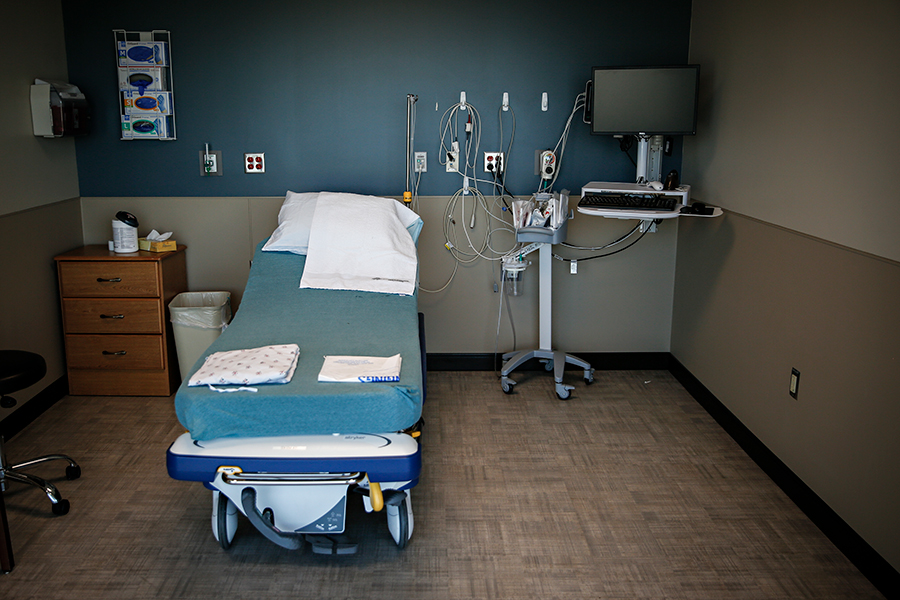No Surprises Act Means Changes For Medical Billing In Flathead County
The federal legislation will play a role primarily in emergency situations and scheduled procedures
By Mike Kordenbrock
Federal legislation that took effect at the start of the new year means that Flathead County residents can expect some changes to medical billing practices.
For Dr. Annie Robbins, the physician director of revenue cycle at Logan Health, it’s an important opportunity for people to become more involved with their healthcare finances.
However, Robbins cautioned that the law, dubbed the No Surprises Act, does not necessarily protect from any and all surprising medical costs.
“A surprise bill is a very technical term in healthcare finance,” Robbins said. “A surprise bill is the result of what we call balance billing, and balance billing is when a patient seeks care at an out-of-network facility, and when that out-of-network facility pays the facility or provider the allotted amount they have in their fee schedule.”
The example Robbins used would be a service costing $100, and the insurance paying $50, and the patient being responsible for the other $50.
“Why this is a surprise bill is because from the patient’s perspective they received an explanation of benefits from their insurance carrier and it says your charge is $100 and we have paid $50,” Robbins said. “The legislation is truly aimed at patients with private insurance who are seeking care with an out-of-network provider, and it prohibits balance billing or surprise bills in the case of emergency services, and in the case where we have not disclosed ahead of time that they are out of network.”
Robbins said that those who receive healthcare through federal programs like Medicare, Medicaid, the Veterans Administration and Indian Health Services, are already protected from balanced billing.
The legislation will primarily play a role in three different circumstances, according to Jackie Boyle Jones, the government affairs director for State Auditor and Commissioner of Securities and Insurance Troy Downing.
“The reality of this is you can go your whole life and not care about this if it never happens to you,” Jones said. “It’s one of those tough issues where you may not understand why it’s so important unless it’s already happened.”
One scenario involves someone receiving emergency care at a facility that’s not in their insurance network. The new law means that insurance providers have to cover the costs as though a person were at an in-network facility.
“That isn’t to say there’s no cost to you. It would be the same cost as in-network,” Jones said. “This happens a lot around the holidays as people are traveling to see family and they’re in an emergency. They’re out of state or somewhere unexpected and then they end up with this large, large medical bill.”
Another scenario where the law will change medical billing is when someone goes in for a scheduled procedure within their insurance network. In some cases, elements of that procedure — perhaps something like radiology work or anesthesiology — come from an out-of-network provider, leaving an individual responsible for paying those costs. That is no longer the case with the No Surprises Act, which prevents surprise bills for scheduled procedures performed in a person’s insurance network.
For patients without insurance, a good-faith estimate must fall within $400 of the total cost and must be provided in advance before any scheduled service.
The last scenario Jones laid out involves air ambulances. The federal law requires air ambulance services be covered at an in-network rate, and preempts state laws relating to air ambulance billing. “It is a much better deal for folks,” Jones said, referring to the protections of the federal law versus Montana law.
An additional aspect of the law requires that billings disputes in all three of those scenarios between insurance companies and medical providers go through a dispute resolution process.
“I think patients were kind of stuck in the middle of a very complicated process, and so this legislation has defined the process by which the provider and insurance company can negotiate,” Robbins said.
Robbins hope is that this can lead to “an awakening amongst Americans about how important it is to be engaged in their healthcare finances.”
The doctor said that financial implications of illness and treatment can be just as stressful for some people as their actual illness.
Her advice, generally speaking, is for people to understand their healthcare plan, know what their out-of-pocket expenses are, know what their copayments are and understand what their deductible looks like. She also encouraged people to understand their costs prior to receiving healthcare to the extent they are able. “Price transparency has been a big push over the last couple of years, and Logan Health has our charges listed on our website, that people can search.”
People can also ask for estimates when speaking with pre-registration staff at Logan, according to Robbins.
If people have issues with a large medical bill, Jones said they can call her office where staff will try to help them.